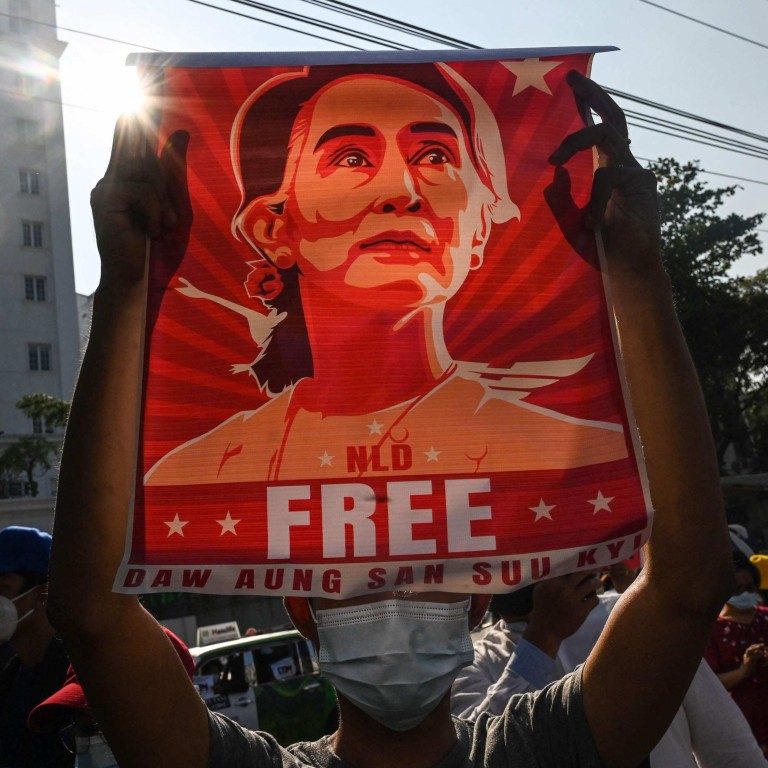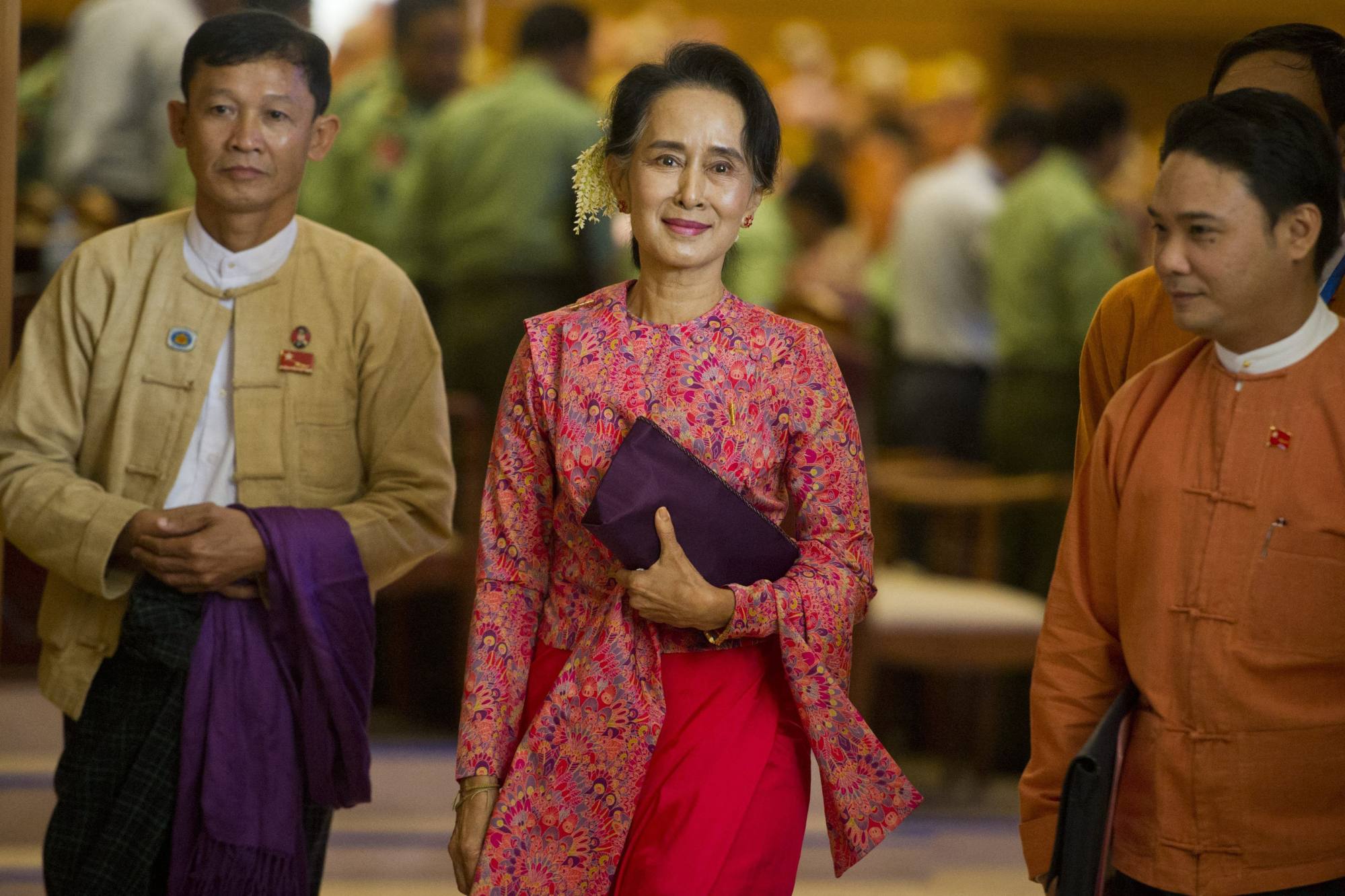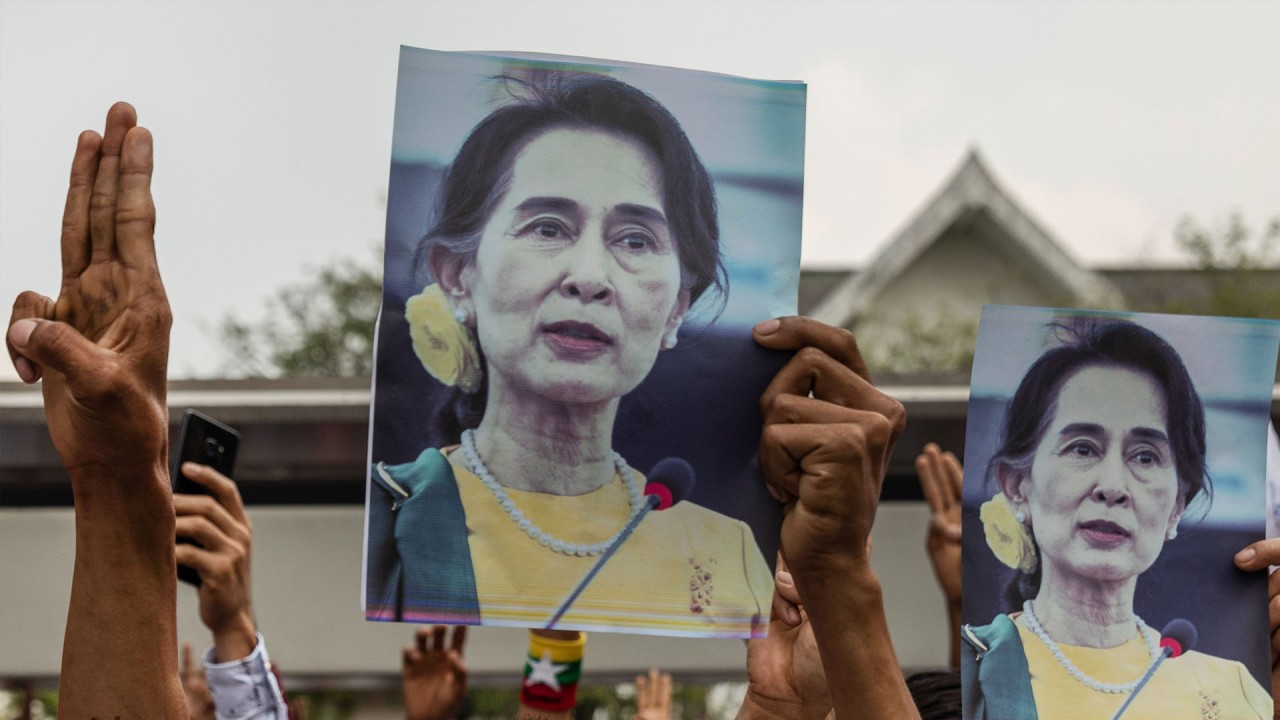
Myanmar’s Suu Kyi moved to solitary confinement in prison, but said to be ‘in strong spirits’
- Suu Kyi was arrested on February 1, 2021, when the army seized power from her elected government
- For most of the past year, Suu Kyi has been held at an undisclosed location in Naypyidaw, the capital
Ousted Myanmar leader Aung San Suu Kyi remained in strong spirits after being transferred from house arrest to prison, a source with knowledge of the case said on Thursday, and would “calmly” face her new solitary confinement.
Since being deposed in a coup last year, Suu Kyi had been under house arrest at an undisclosed location in Naypyidaw, accompanied by several domestic staff and her dog, according to sources familiar with the situation.
The Nobel laureate, 77, left those premises only to attend hearings for her numerous trials in a junta court that could see her handed a prison sentence of more than 150 years.
On Wednesday she was transferred from house arrest to “solitary confinement in prison”, junta spokesman Zaw Min Tun said in a statement.
Her future trial hearings would take place inside a courtroom within the prison compound, he added.
Suu Kyi remained sanguine after the transfer, a source with knowledge of the case told Agence France-Presse on Thursday.
Myanmar minister joins Asean meeting, junta shifts Suu Kyi trial to prison
“She acts like before and is in strong spirits,” said the source, who requested anonymity. “She is used to facing any kind of situation calmly.”
Another source with knowledge of the case said Suu Kyi’s domestic staff and her dog had not accompanied her when she was moved Wednesday, and that security around the prison compound was “tighter than before”.
Suu Kyi will be provided with three female staff from inside the prison to look after her, said the source, without specifying whether they would be convicts or prison wardens.
A spokesman for United Nations Secretary-General Antonio Guterres said the global body’s officials were “very concerned” for Suu Kyi.
The junta’s move “goes against everything we’ve been calling for, which was her release and the release of … all of the other political prisoners,” spokesman Stephane Dujarric told reporters Thursday at UN headquarters.
Since seizing power, Myanmar’s military government has detained thousands of pro-democracy protesters, with many facing secret trials that rights groups have decried as politically motivated.
Suu Kyi’s lawyers have been banned from speaking to the media, with journalists barred from her trial and the junta rebuffing requests by foreign diplomats to meet her.
“What we are seeing is the Myanmar junta moving towards a much more punitive phase, towards Aung San Suu Kyi,” said Phil Robertson, deputy Asia director for Human Rights Watch.
“They are obviously trying to intimidate her and her supporters.”
Under a previous junta regime, Suu Kyi spent long spells under house arrest in her family mansion in Yangon, Myanmar’s largest city.
In 2009, she spent around three months in Yangon’s Insein prison while she went on trial after being accused of harbouring an American man who swam across a lake to visit her while she was under house arrest.
Under the current junta, she has already been convicted of corruption, incitement against the military, breaching Covid-19 rules and breaking a telecommunications law, with a court sentencing her to 11 years so far.

Suu Kyi turned 77 on Sunday and brought a birthday cake to court to eat with her lawyers ahead of a Monday hearing, according to a source with knowledge of the matter.
The coup last year sparked widespread protests and unrest that the military has sought to crush by force.
Fighting has flared with established ethnic rebel groups in border areas, and across the country “People’s Defence Forces” have sprang up to fight junta troops.
According to local monitoring group Assistance Association for Political Prisoners, the crackdown has left more than 2,000 civilians dead while 14,000 have been arrested.
Malaysia’s role pressuring Myanmar junta praised by UN human rights expert
Diplomatic efforts to end the crisis led by the Association of Southeast Asian Nations, the regional bloc to which Myanmar belongs, have floundered.
Tom Andrews, UN special rapporteur on human rights in Myanmar, on Thursday called for the bloc to increase pressure on the junta.
“The longer we wait, the more inaction that there is, the more people are going to die, the more people are going to suffer,” he said.

.png?itok=arIb17P0)
